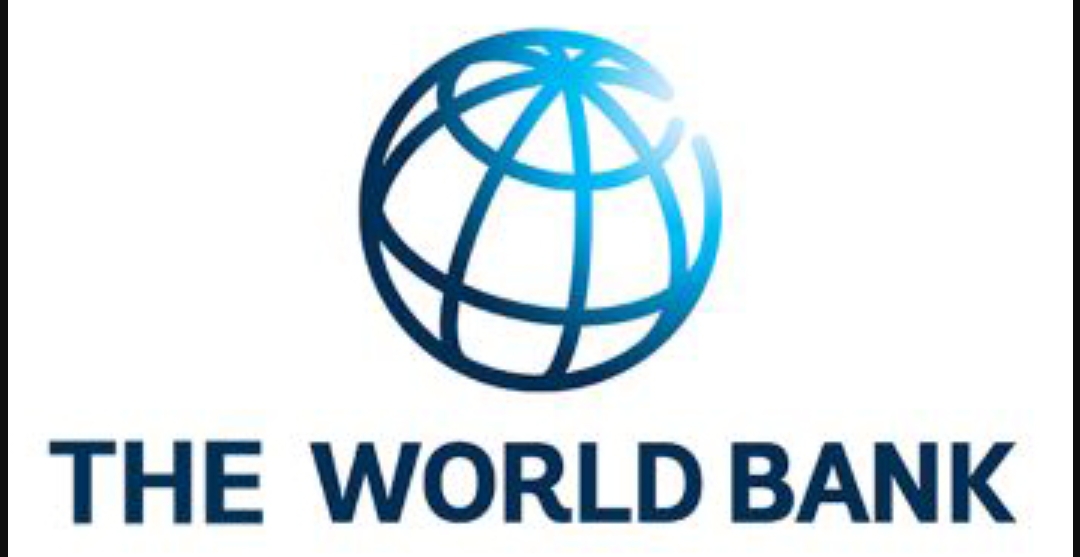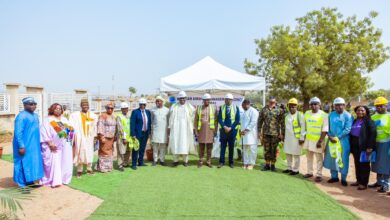
As the ministerial level engagements at the 2024 Annual Meetings of the World Bank Group intensify in Washington DC, the United States, a coalition of water justice activists under the aegis of the Environment and Water Justice Network (EWJNet) has accused the Bank and the International Monetary Fund (IMF) for being the drivers of disruptive water privatisation projects on the African continent.
Some members of the network including the Citizen Free Service Forum (CFSF), Renevlyn Development Initiative (RDI), Environmental Defenders Network (EDEN), Amalgamated Union of Public Corporations Civil Service Technical and Recreational Services Employees (AUPCTRE), Community Development Advocacy Foundation (CODAF) and Child Health Organisation, among others, cautioned governments on the continent to be wary of the World Bank’s financial inducements.
The EWJNet said that as the largest investor in water projects on the African continent, the World Bank is the force behind the dismantling of state-owned water companies to pave the way for privatisers.
In a statement made available to journalists, EWJNet said the meeting in Washington which supposedly opens a window for the public to engage the Bank through live-streamed events is a closed-ended charade as recommendations from the public are not considered in the institutions’ decision making processes.
Executive Director of Citizens Free Service Forum (CFSF), Comrade Sani Baba, said: “African governments have enough examples of how World Bank funded initiatives pave the way for disastrous privatization of water resources.
“From Nigeria where the business arm of the World Bank, the International Finance Corporation (IFC) provided advisory services to the Lagos government to embark on privatization of its abundant water resources to the federal level where it also supported the now rested National Water Resources Bill, the disruptive imprint of the Bank is in the public domain.”
Executive Director of Renevlyn Development Initiative (RDI), Philip Jakpor said: “The annual simulation of public engagement by the World Bank is a meeting to further refine strategies of privatization of water and not targeted at the glaring human rights issues that are replete with privatized utility on the continent.
“Unfortunately, in country after country, these initiatives couched as public private partnerships have only generated tales of woe and a portfolio of inter-generational debt.
On her part, Executive Director of Child Health Organisation, Vicky Urenma said: “We do not believe in the so-called window of public engagement in the meetings that the World Bank created on social media. The women and young girls who are impacted negatively by water privatization and risk their lives to go long distances to get water daily are not on twitter or the other platforms. But they are the real victims of the policies conceived in the meetings.
Also speaking, Executive Director of Environmental Defenders Network (EDEN), Barrister Chima Williams said: “Water privatization is a legacy of colonialism and imperialism being foisted on Africa’s water systems. It must be rejected because it is a form of colonialism which also comes with debts and the indignity that our communities experience when their common patrimony is stolen from them.”
In his intervention, Coordinator of the Ecumenical Water Network (EWN) Africa, Reverend Kolade Fadahunsi said: “It is disheartening that despite growing remunicipalisations and the recognition of the effectiveness of public sector investments, the World Bank is hell-bent on forcing privatisation of water on the continent. The ongoing meeting in Washington is only an opportunity to reaffirm failure through technical jargons. African governments must refuse to be hoodwinked because privatisation of water is a trap.
As the global water crisis continues to grow and affect over 2 billion people, the rigorously promoted privatization of water utilities have continued to fail in both quality and service delivery.
Across Africa private corporations are shutting water to thousands of poor people. It is happening in Kenya and South Africa where poor people who cannot pay for water are denied access. For Mali and Niger water privatisation is tied to debt relief.
In Ghana, water rates hit the roof after privatisation leaving one third of the population without water. Senegal and Gabon that the private water industry prides as a success experience frequent water service interruption, environmental and public health threats that have led to illnesses.
EWJNet comprises civil society, labour, faith-based, women-led and grassroots organisations advocating for the protection and upholding of the human right to safe and affordable water within the context of public control.











